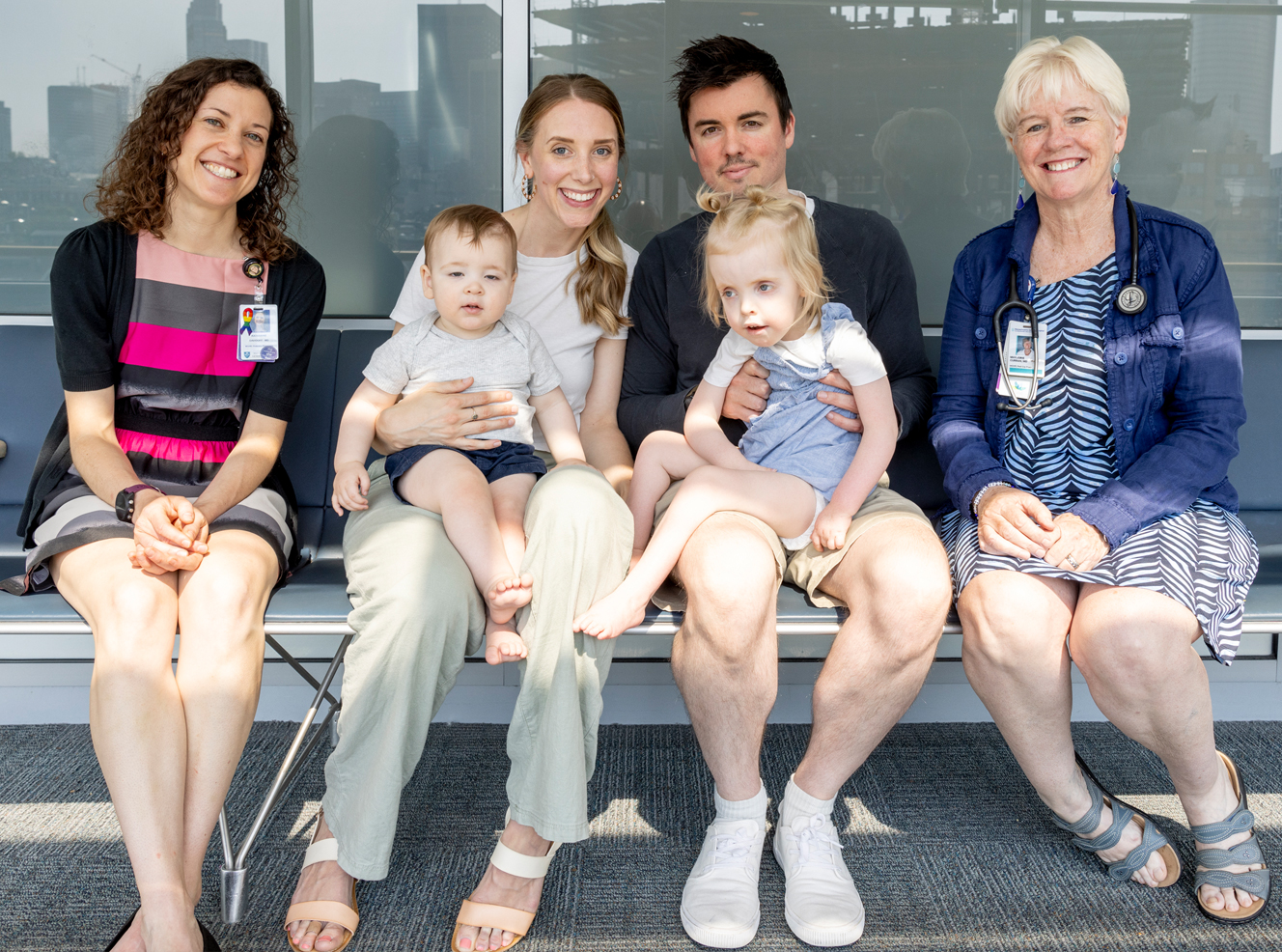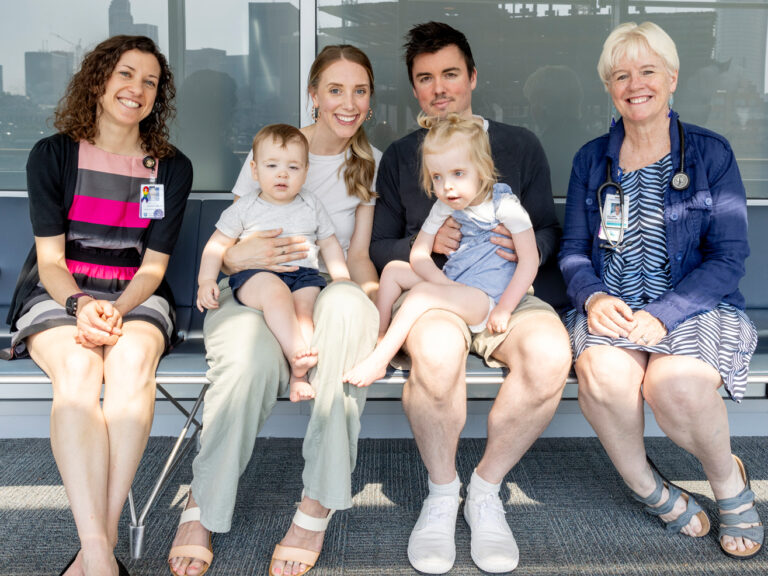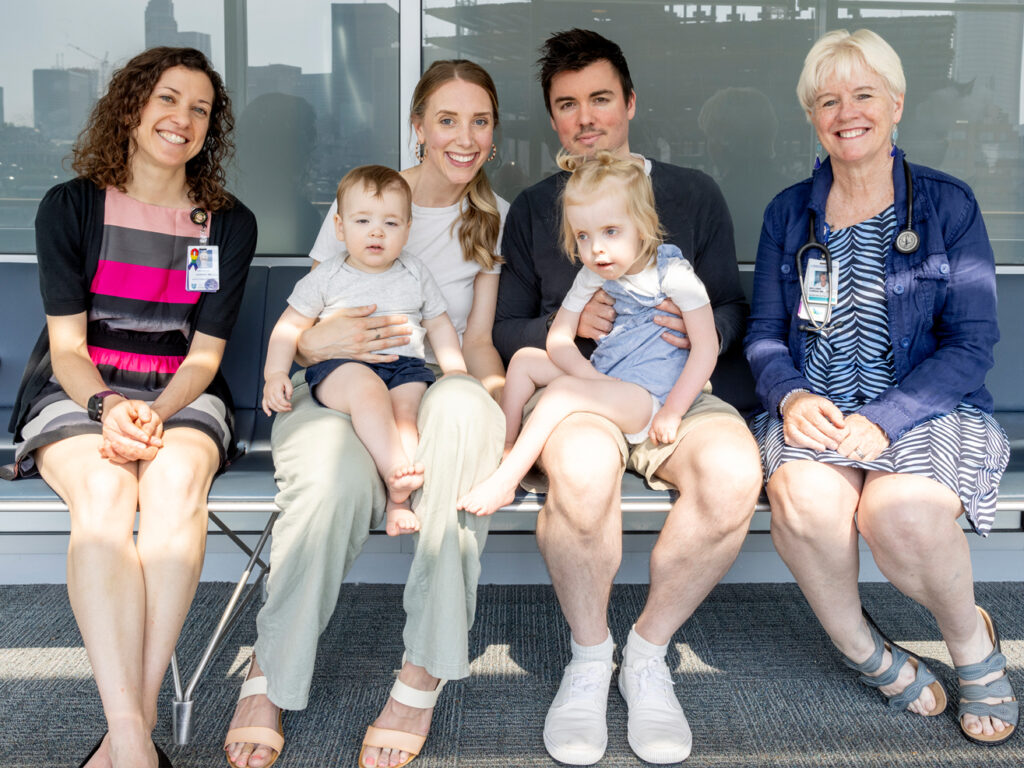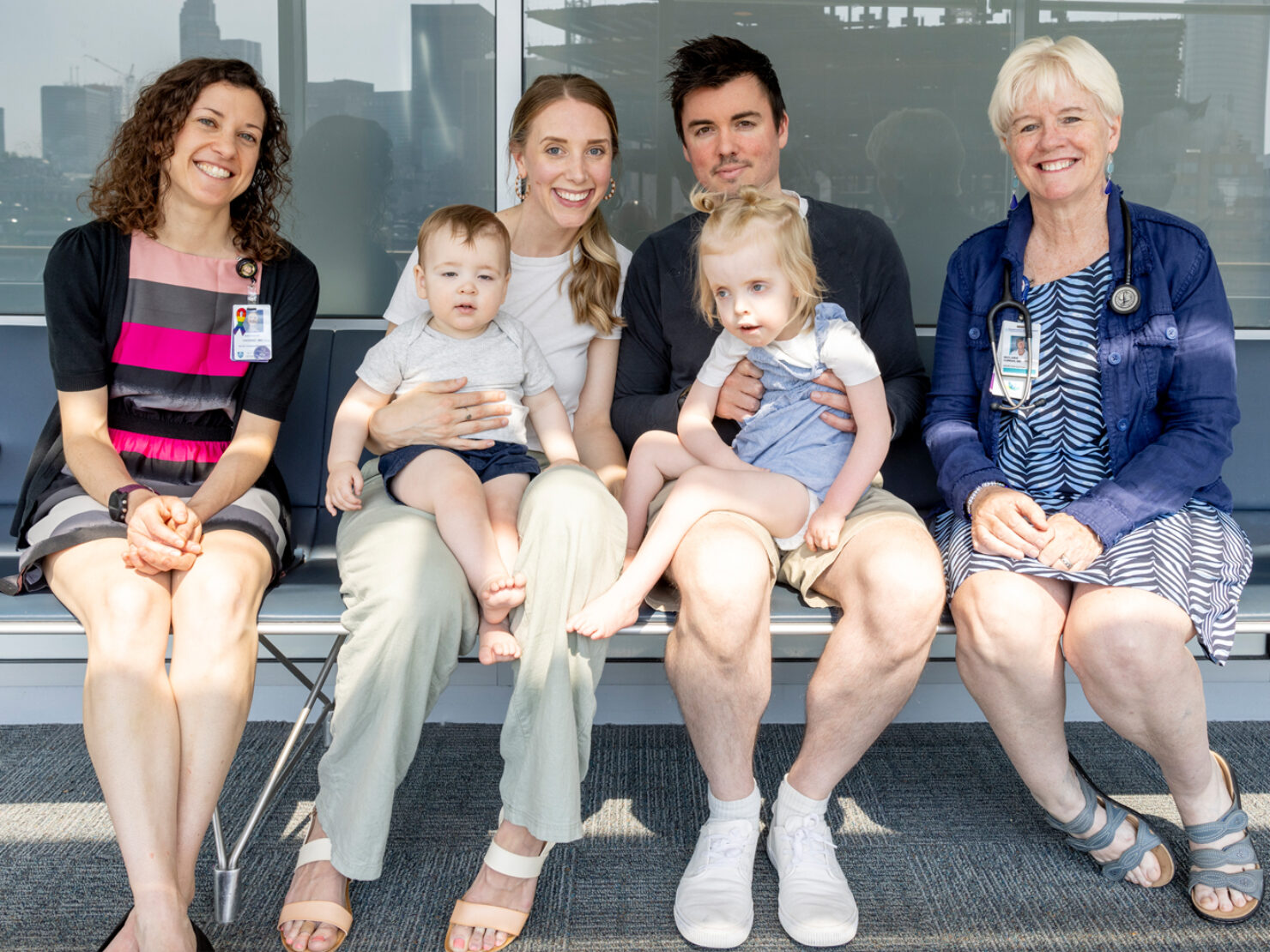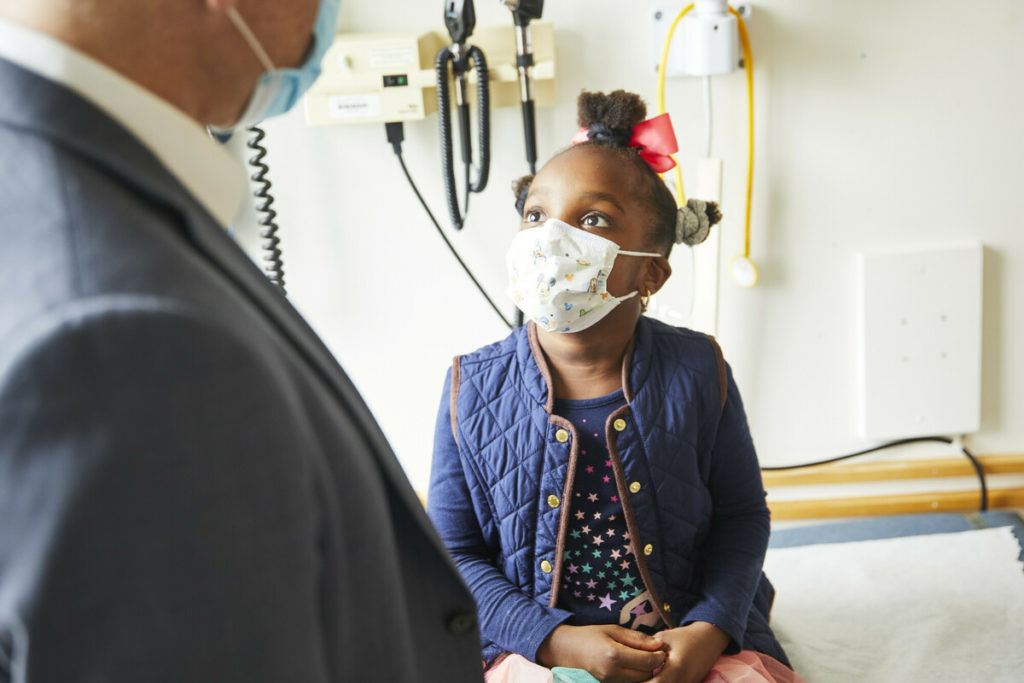For kids like Maya McGee, going to the doctor involves a lot more than an annual physical exam from her primary care provider. Since Maya was born four years ago with a rare genetic disorder, she has received care from across Massachusetts General Hospital, including the departments of neurosurgery, neurology, the medical intensive care unit, supportive and palliative care, infectious disease, genetics and genomics, nutrition and services like massage and music therapy.
As the parent of a child with complex medical needs, Maya’s mom, Kathryn, says, “We were seeing so many different specialists, and it was so difficult to keep track of everything — we didn’t feel like there was a central ‘hub’ for Maya’s complex care. Her geneticist recommended that we get in contact with Dr. Marjorie Curran at the Center for Courageous Kids when Maya was around one year old, and we’ve felt so well taken care of since then.”
Lightening the Load
The Center for Courageous Kids at Mass General for Children (MGfC) is an innovative center that provides multidisciplinary, compassionate care for children with complex medical needs and life-limiting illnesses. The aim of the center is to improve the quality of life for these children and their families by collaborating and coordinating clinical care, supportive and palliative care, and for some families, bereavement care. Through the center, Dr. Curran is able to work with Maya’s parents to keep track of appointments and follow-up steps, bridge the transition between inpatient and outpatient care, answer questions, identify and access resources and talk through decisions around Maya’s care.
“These families are already juggling so much, between caring for a medically complex child, often caring for other children and family members, navigating the healthcare system and juggling everything else that life throws at them,” says Katharine Davidoff, MD, palliative care physician at Mass General. “We can help to take some of that off their plate by centralizing their complex care under one roof.”
“We’re working to help fill in the gaps in the medical system for these families who already have so much on their shoulders,” Dr. Curran says. “Providing comprehensive, coordinated care, we work closely with each family to determine their unique needs and accompany them throughout their healthcare journey. We help families assemble their healthcare teams, communicate with subspecialists in the hospital, work with healthcare providers in the community, including school nurses and physical therapists and follow patients through hospitalizations and outpatient appointments.”
“It’s made a world of difference for our family to have Dr. Curran in the loop for every aspect of Maya’s care, reaching out to us regularly to make sure we have everything we need,” Kathryn says. “Before that, it felt like my husband and I were doing it all on our own, and it could get really overwhelming.”

Expanding Services
As the Center for Courageous Kids grows, it hopes to implement services that could additionally help support families, but that are not covered by traditional health insurance or public funding sources — services that require philanthropic support.
The center is eager to increase support for parents and siblings in the form of on-staff mental health professionals and resource specialists. For patients, they aim to offer increased integrative medicine services — things like acupuncture and reiki. “The research has shown that when pain is better managed and patients’ level of stress is decreased, that their quality and length of life are greatly improved,” says Dr. Curran. But, she explains, with these services not always covered by insurance, the Center needs the support of donors in order to offer them to patients.
“There are also many services offered by the state for children with complex and life-limiting diagnoses, but it can be extraordinarily difficult for families to know what they qualify for and how to apply for them,” Dr. Curran says. That’s where a resource specialist comes in, to do the work of identifying and accessing resources for families, to coordinate with school nurses and guidance counselors to ensure a child’s needs are being met at school and to assist families facing financial, social or linguistic barriers to accessing support services.
For Maya and her family, services that connect them to other families going through similar experiences would be greatly impactful. Maya’s younger brother, Miles, is only one year old, and Kathryn expresses that connecting him with other siblings as he gets older could really help him feel understood. “Miles loves Maya so much and is her smallest but biggest advocate, but it can be really isolating,” she says. “He already understands that this is our normal — appointments that often require a full day of travel, therapists in and out of the house, and ICU stays — but I think for all of us, feeling like there are other families we can connect with that ‘get it’ would be so helpful.”
“We serve a particularly vulnerable population,” Dr. Davidoff says. “Our services are invaluable to improving the lives of our patients and their families, and there’s no one else doing the work that the Center for Courageous Kids is doing to support them — we are the clinic for pediatric patients for whom there is no designated clinic.”
To support the Center for Courageous Kids at Mass General for Children, click here.

